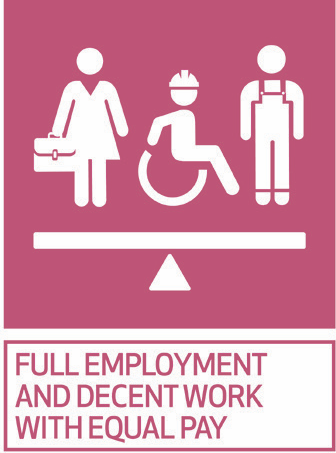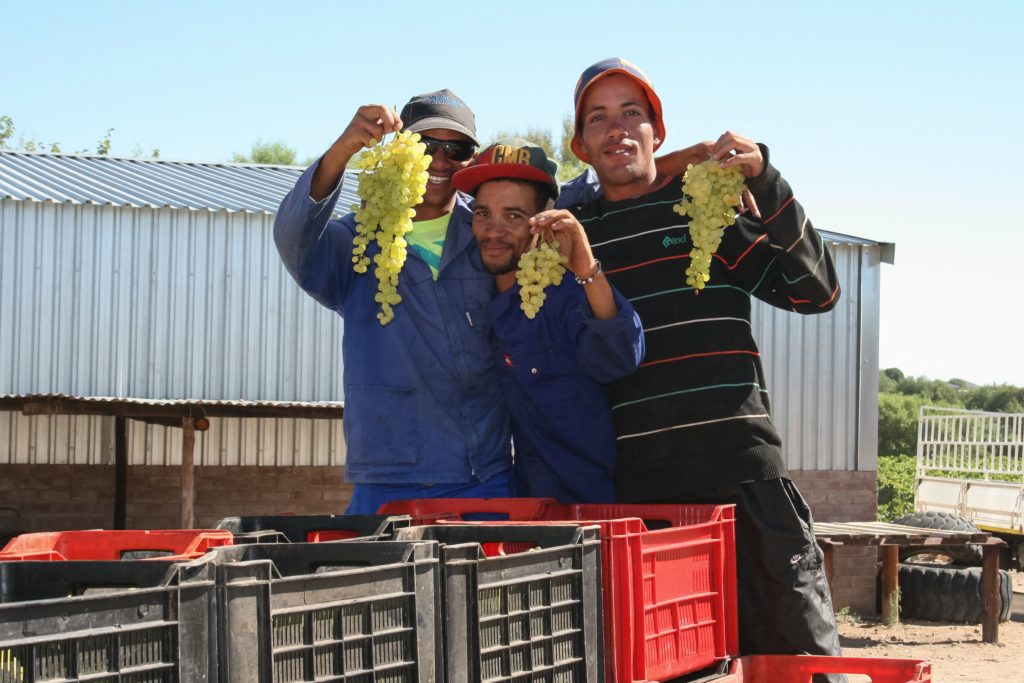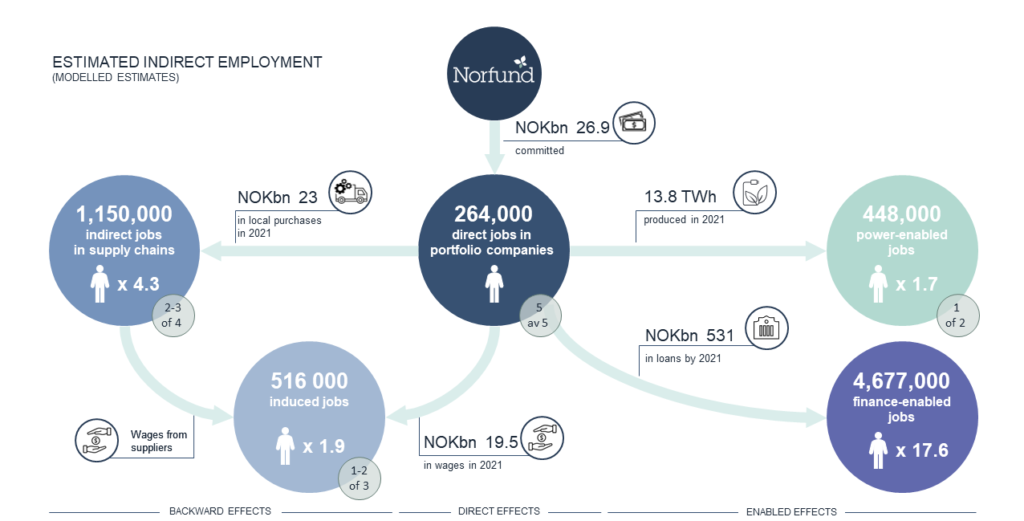Norfund contributes to creating jobs directly in portfolio companies and indirectly through their value chains.
Results in 2021
New jobs created in portfolio companies*
Total jobs in portfolio companies
* In companies with two consecutive years of reporting
Development rationale
Jobs are vital to reducing poverty. Jobs generate income, are a basis for taxation, provide security, and can enable knowledge and skills development.
Norfund’s investments contribute both directly and indirectly to the achievement of SDG Target 8.5.
In 2021, the International Labour Organization estimated that 207 million jobs were needed to address the current levels of unemployment, an increase from 187 million in 2019. The COVID-19 pandemic has had a serious negative impact on businesses in developing countries and on working hours and income levels in Norfund’s markets where unemployment rates were already high.

Norfund’s investments contribute both directly and indirectly to the achievement of SDG Target 8.5.
Record high investment level
In Africa, more than 80% of the jobs are within the informal sector*. This means that the workers are unregistered, have no insurance or sick leave schemes and have limited access to training. As such, it is crucial to develop formal job opportunities and ensure that these are jobs where workers’ rights are protected.
Avoiding further job losses and creating a substantial number of new jobs in the formal sector in developing countries is therefore more important now than ever. It is also a prerequisite that the jobs are in businesses that are financially viable to sustain the impacts.
Read more about our financial results here.
Results 2021

451,000 jobs in Norfund portfolio companies
By the end of 2021, a total of 451,000 people were employed in the companies in which Norfund is invested, either directly or through funds. 85% of these were permanent jobs.
From the end of 2020 to the end of 2021, Norfund’s portfolio companies (with two consecutive years of reporting) reported a net increase of new jobs by 4%, or more than 13,400 jobs.
Approximately 34% of the total people employed in Norfund’s investees were women, and 22% were youth, defined as below 25 years.
Female employees in Norfund portfolio companies
Youth employees in Norfund portfolio companies
217,000 people were employed in companies operating in Africa, or 52% of total employees in Norfund’s investees.
26% of the jobs are in Least Developed Countries (LDC).
Jobs per region
35% were employed in companies in Asia, 10% were employed in companies in Latin America and 4% were employed in companies operating globally.
As there is currently no consensus on how to quantify investor contribution to company growth and development impact, Norfund attributes the impact reported solely to our portfolio companies.
JIM Model: Jobs indirectly supported
Norfund’s portfolio companies also contribute indirectly to employment and job creation through purchases of goods and services from other enterprises and when the employees or suppliers’ employees spend their salaries.
Portfolio companies also support employment through energy production and access to finance. Finally, all the companies contribute to government revenues and spending ability by paying taxes, stimulating further job creation in public service sectors such as healthcare and education.
In 2020, Norfund applied the Joint Impact Model (JIM) for the first time, to estimate the scope of indirect employment impacts. The model is continuously subject to updates and improvements. Norfund has also used the model to estimate indirect employment for 2021.

Disclaimer: Impact results are calculated using the Joint Impact Model, a web-based tool for impact oriented investors in developing markets developed by Steward Redqueen, in coordination with CDC, FMO, BIO, Proparco, AfDB, and FinDev Canada. The results are calculated using economic modelling and do not represent actual figures, rather, they are estimates and should be interpreted as such.
Direct jobs
A total of 264,000 jobs are held directly in the subset of Norfund’s portfolio companies for which the model is applied. These are actual figures reported by investees and do not include third party hires. 33% of the direct jobs are in LDC, and just over half the jobs are in Africa. Around one third of the direct jobs are held by women, and around 1/5 is held by youth employees. The confidence level for the actual figures is high (5 of 5).
Indirect jobs

Indirect jobs from supply chains: During 2021, the companies in Norfund’s portfolio purchased 23 billion NOK of inputs from local providers.
This is estimated to have supported around 1,150,000 jobs in the supply chains, or 4.3 times as many jobs as held directly in Norfund’s portfolio companies.
25% of the jobs from supply chains are in LDC and the majority are in Africa. The model estimates that 44% of the jobs are held by women, while one in five jobs are held by youth (aged 15-25).
The confidence level for the modelled estimates ranges from 2 to 3 (of 4), depending on investee data availability.

Induced jobs from spending of wages: During 2021, the companies in Norfund’s portfolio companies reported paying 19.5 billion NOK in wages to employees. Wages spent by workers in the supply chain companies also support economic activity.
It is estimated that around 516,000 jobs were supported by this local spending, or 1.9 times as many jobs as held directly in Norfund’s portfolio companies.
34% of the induced jobs are in LDC and 72% are in Africa.
It is estimated that 45% of the jobs are held by women and one in five of the jobs are held by youth (aged 15-25).
The confidence level for the modelled estimates ranges from 1 to 2 (of 3), depending on investee data availability and due to using 2021 fiscal year data.

Enabled jobs by power: During 2021, the companies in Norfund’s portfolio generated a total of 13.8 TWh electricity. This is equated to output in electricity-using sectors, which in turn is translated to estimates of the number of workers needed to produce this output.
In 2021, around 448,000 jobs were supported by the power produced by Norfund’s clients, or 1.7 times as many jobs as held directly in Norfund’s portfolio companies.
63% of the jobs are in LDC and nearly all of the jobs are in Africa.
The confidence level for the modelled estimates is 1 (of 2), due to using 2021 fiscal year data.

Enabled jobs by finance: The banks in Norfund’s portfolio had lent NOK 531 billion to businesses by the end of 2021.
This supported an estimated 4,677,000 workers in borrowing companies, or 17.6 times as many jobs as held directly in Norfund’s portfolio companies. 62% of the jobs are in LDC and while 58% of the jobs are in Africa.
It is estimated that an additional 2,808,000 jobs are supported through these companies’ supply chains, and 1,925,000 jobs are supported by spending of wages.
The model does not estimate jobs in the public sector financed through increases in tax income, although there are good reasons to believe that there are such indirect effects as well.
Promoting job quality
Norfund promotes job quality using the IFC Performance Standards (PS) on Environmental and Social Sustainability in our investment processes.
The IFC PS is the key tool used by development finance institutions, such as Norfund, to assess the environmental and social risks of investments. One of the PS focuses on Labour and Working conditions and includes provisions for issues such as workers’ rights, health and safety, anti-discrimination and equal opportunity. The standards are aligned with the ILO’s core conventions.
More about harmonised indicators for private sector at Norfund.no